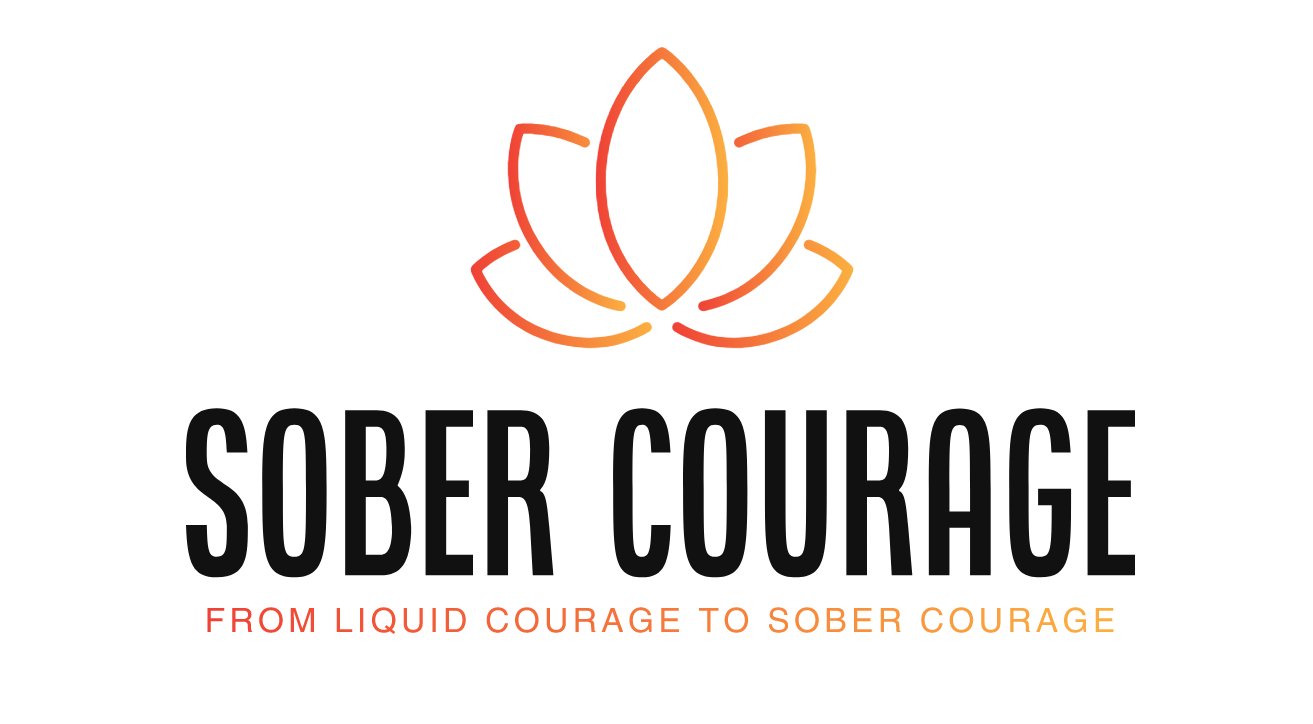Recovery is a huge part of my life, and the sole reason behind this blog. Getting sober is hard! It takes a great amount of courage to move forward into the unknown, against the grain, against all the odds, against all the social stigma!
Alcohol is everywhere, and you cannot escape it. Yet, if you are like me, and one of the people who cannot drink without getting completely obliterated, then living in a world infused with alcohol can be quite a challenge! But quitting is not the beginning of the problem – it is the end of the problem!
I did not know it then, but my decision to get sober was the beginning of an extraordinary journey that has been both very challenging and intensely rewarding. You see, I think getting sober is just like anything else that you want to accomplish in life; it takes time, determination, and perseverance. Most of all it takes a tremendous amount support from others. Unfortunately, we tend to carry do much so much guilt and shame about our alcohol infused behavior, that most people never find the courage to ask for help. There is also a cruel social stigma and many painful judgments that are placed on people suffering from Alcohol Use Disorder.

So all around, it is a hard place to be – and I get it, if I say that I need help, that means that I am admitting that I cannot handle alcohol! Well guess what! I CANNOT! Yep, I cannot drink safely no matter what. So seriously, it is quite beneficial for everyone around me that I stay sober!
There are many of us – the statistics are staggering!
Adults (ages 18+): According to the 2022 National Survey on Drug Use and Health (NSDUH), 28.8 million adults ages 18 and older in the USA (11.2 % of this age group) had Alcohol Use Disorder (AUD) in the past year. This includes 17.1 million men (13.6 % of men in this age group) and 11.7 million women (8.9 % of women in this age group).
Yet:
Only 7.6 % of adults ages 18 and older who had AUD in the past year received treatment. This includes 8.2 % of males and 6.5 % of females with AUD in this age group.
And:
178,000 deaths (approximately 120,000 male deaths and 59,000 female deaths) attributable to excessive alcohol use, making alcohol one of the leading preventable causes of death in the United States.
Also:
In 2021, alcohol-impaired driving fatalities accounted for 13,384 deaths (or 31% of overall driving fatalities).

Life in addiction is a very lonely and difficult place to be, and most of all deadly. However, there IS a solution, there is a way out, and it is Recovery. Of course, I am not a doctor (and I do not play one on TV either LOL), or a therapist, or any licensed individual practicing any medicine. I am however recovering from Alcohol Use Disorder (AUD), and I would like to share what I have learned and continue to learn through my sober journey, with you, in hopes that it may help you find your way to recovery!
There are 23 million of people in recovery in the USA alone! (Faces and Voices of Recovery)
So if this is your first 24 hours, or 24 days, or 24 years, WELCOME!
I am glad that you have found me. I would love to join you on this journey to sobriety. I hope that you find this blog helpful! The posts focus on getting sober, challenges of early sobriety, personal growth in sobriety, and dealing with the social stigma associated with Alcohol Use Disorder, and recovery.
Getting sober is not shameful!
I hope you keep coming back, because alone I cannot, but together WE CAN!
Connect with Sober Courage on Facebook, Twitter and Instagram.
*Problem drinking that becomes severe is given the medical diagnosis of “Alcohol Use Disorder” or AUD. AUD is a medical condition characterized by an impaired ability to stop or control alcohol use despite adverse social, occupational, or health consequences. It encompasses the conditions that some people refer to as alcohol abuse, alcohol dependence, alcohol addiction, and the colloquial term, alcoholism. Considered a brain disorder, AUD can be mild, moderate, or severe. (Ref: NIAAA).
Definitions and statistics last updated 03/2024.


Hi, I’m just starting on my journey as of Sunday. I was drinking almost a whole 750ml bottle of vodka a day. I am 46 years old and was, I don’t want to say forced, but bullied by my mother, 2 little sisters and my little brother to go into a detox facility this past Sunday. I did not want to go to say the least. I’ve never been in a facility, I was scared and I hated it. But I realize I need help. I checked myself out the next day. I felt pretty ok after the meds they gave me so I’m trying this on my own with help from my husband, friends, church, and this blog. I go to my first AA meeting tomorrow. I will be put on Neloxone next week so i pray that helps me get over the hump. If you all have any suggestions, books, things that have helped you I’d love your input. I’m going to get there, I know it’s going to be hard, but if I want to continue to live it’s necessary. Big hugs to all of you!
LikeLiked by 1 person
I am sorry I am just replying. I hope you are doing well and sobriety is getting a bit easier. And if it has been bumpy, I hope that you are still trying and working towards sobriety. It is really hard to get sober on your own so a big network is vital so I am glad to read that you are finding support. Sending big hugs!
LikeLike
You can find meetings of Alcoholics anonymous in Belfast at https://belfastaa.com. I hope and pray that you got the answers you needed and that all is going well for your recovery. Please , please keep coming back.
LikeLike
IOP stands for Intensive outpatient program. This program is intermediate in substance abuse treatment. It is possible to start your journey in detox , residence , partial Hospitalization Program (PHP) or an intensive Outpatient Program. IOPs usually meet three to five times per week. These meetings will include individual therapy as well as group therapy.
LikeLike
Great read! Wishing you well in your continued recovery. 🙂
LikeLiked by 1 person